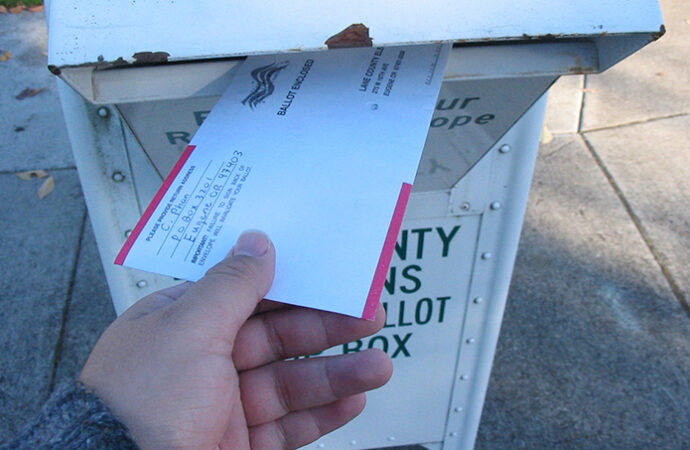An interesting revelation came to light earlier this month that has added fuel to the fire over the debate to implement universal vote-by-mail in Arizona.
Several weeks ago news broke that a complaint had been filed with Attorney General Mark Brnovich outlining possible felony voter fraud by the son of Democrat State Representative Mitzi Epstein. According to the complaint, 29-year-old Daniel Epstein has lived in New York since at least 2017. An extensive online paper trail of Facebook posts and employment information indicates that he moved to the Empire State to attend New York University and, after graduating from NYU two years ago, continued to live and work there as an actor.
Yet living 3,000 miles away has not stopped him from voting in multiple Arizona elections by mail from his parent’s home, including the most recent Tempe City Council race in March. How these mail-in ballots were cast is uncertain, which is why a deeper probe into the matter is warranted.
Usually very outspoken and active on social media, Rep. Epstein has yet to comment on these allegations. She likely understands the gravity of the situation and had to be aware of her son’s voting patterns since the ballots were sent to her home. Ultimately, she will have to explain why her 29-year-old son, who has been working as an actor in New York for years, is still casting ballots in Arizona elections.
This complaint clashes with the narrative being pushed by media outlets, liberal pundits, and Democratic Party leaders looking to use COVID-19 as an excuse to implement universal vote-by-mail.
For more than two months, Republicans have been attacked relentlessly for opposing this plan for the 2020 election. Opposition is tantamount to wanting people to die from coronavirus, and concerns of voter fraud are scoffed at as unfounded “conspiracy theories.”
Yet ample research and evidence prior to this complaint already indicate that mail-in voting is susceptible to fraud. According to the bipartisan commission on federal election reform, chaired by former President Jimmy Carter, the findings concluded that absentee ballots remain “the largest source of potential voter fraud” in the electoral process. The New York Times reported in 2012 that there was bipartisan consensus that votes cast by mail are “less likely to be counted, more likely to be compromised and more likely to be contested than votes cast in a voting booth.”
Here in Arizona, it is easy to see how our Permanent Early Voter List (PEVL) system can be abused. Since the list is permanent, voters stay on the rolls long after they are ineligible to vote. There are numerous examples of people finding ballots in interesting locations or receiving ballots from voters who have moved away or have died.
The only safeguard in the election process prior to an early ballot count is an examination of the signature on the front of the envelope. Poll workers do their best to verify the authenticity of the signature but this process becomes an impossible task when hundreds of thousands of early ballots are dumped in their laps on election day.
Arizona needs election reform, but not the type our political class wants. Though we should maintain our vote-by-mail system (which is one of the most accessible in the nation for voters), policymakers need to take a closer look at cleaning up our voter rolls and addressing the problem of early ballot stacks being dropped off on election day. The latter issue has turned into a nightmare for election officials, has led to mistakes by overworked poll workers and delayed results for weeks after polls had closed.
These fixes are long overdue and should take precedence over attempts to make it easier to game our election system.
—
This article has been republished with permission from American Greatness.
[Image Credit: Flickr-Chris Phan, CC BY 2.0]
Image Credit: [Image Credit: Flickr-Chris Phan, CC BY 2.0]
















Leave a Comment
Your email address will not be published. Required fields are marked with *